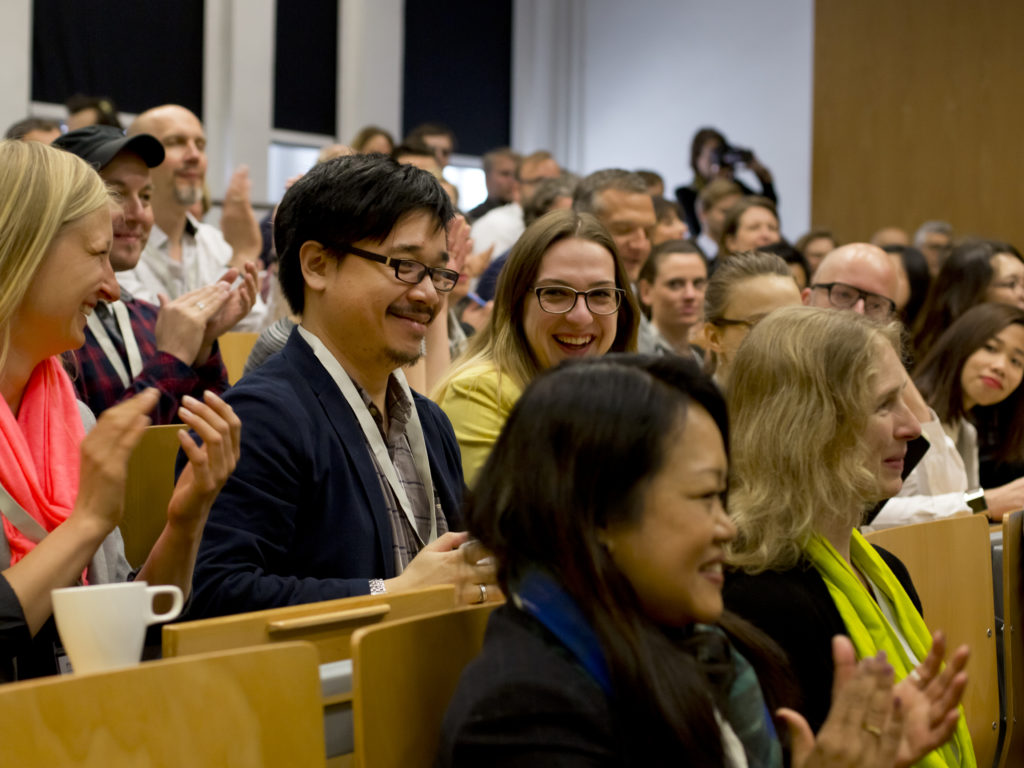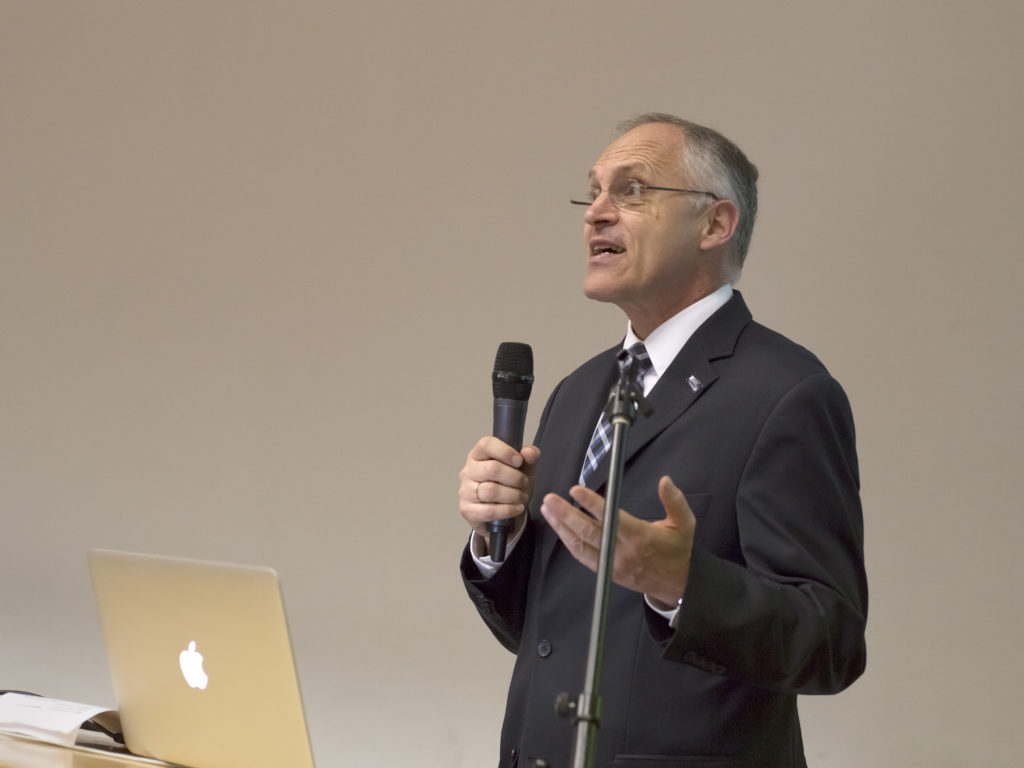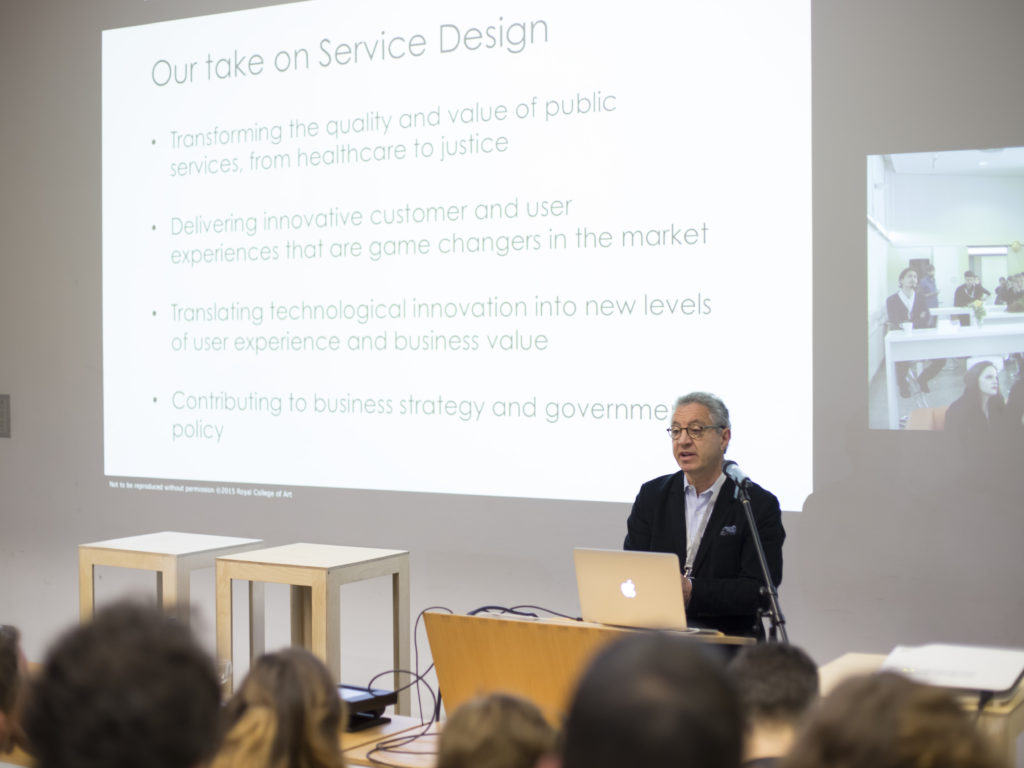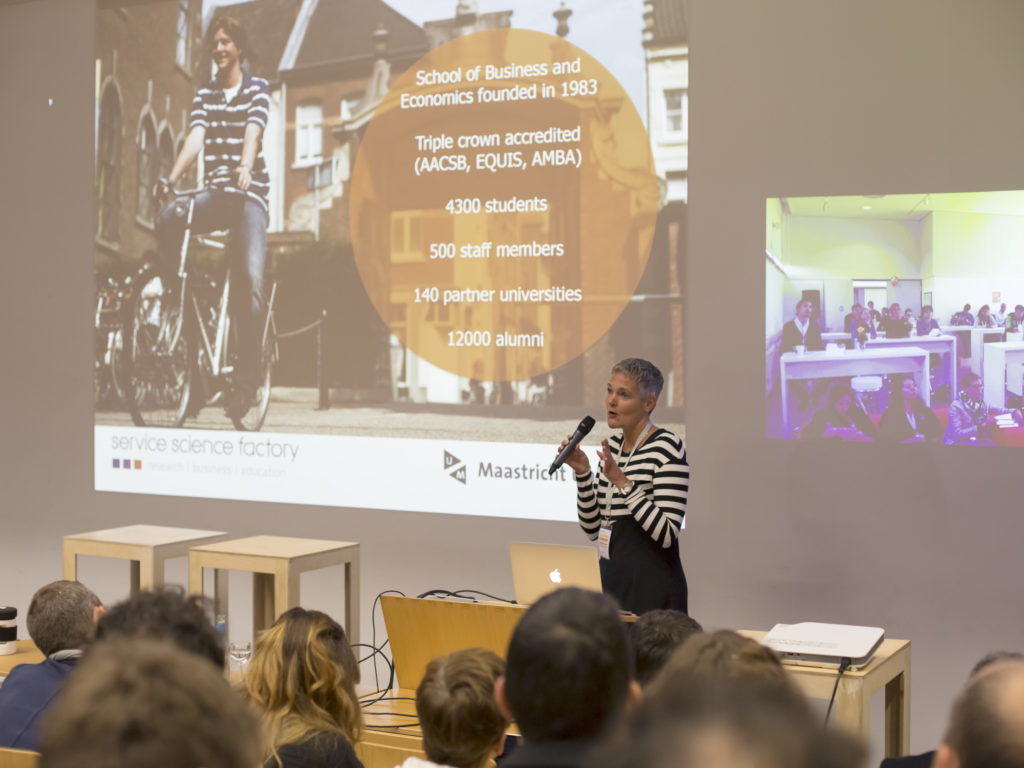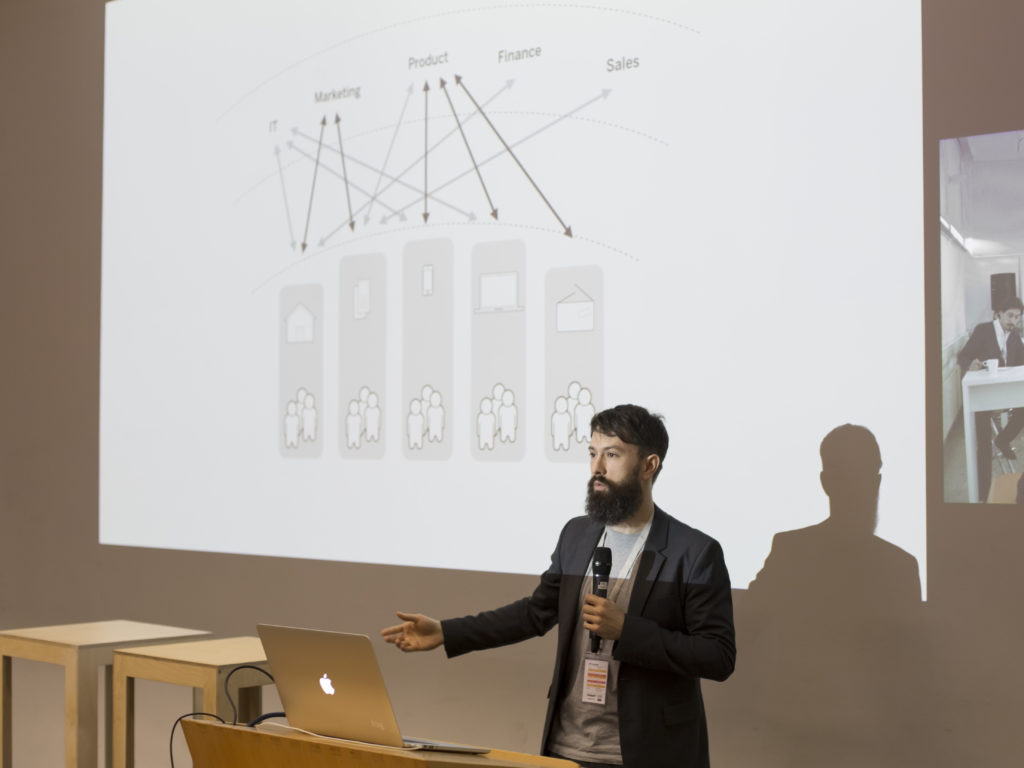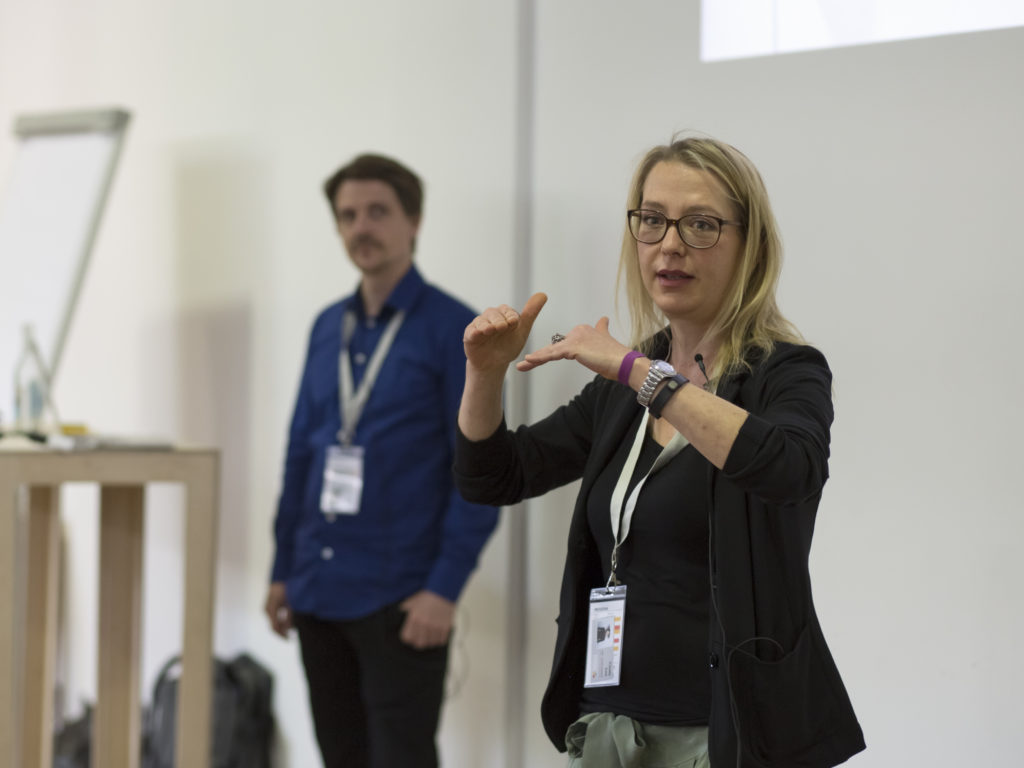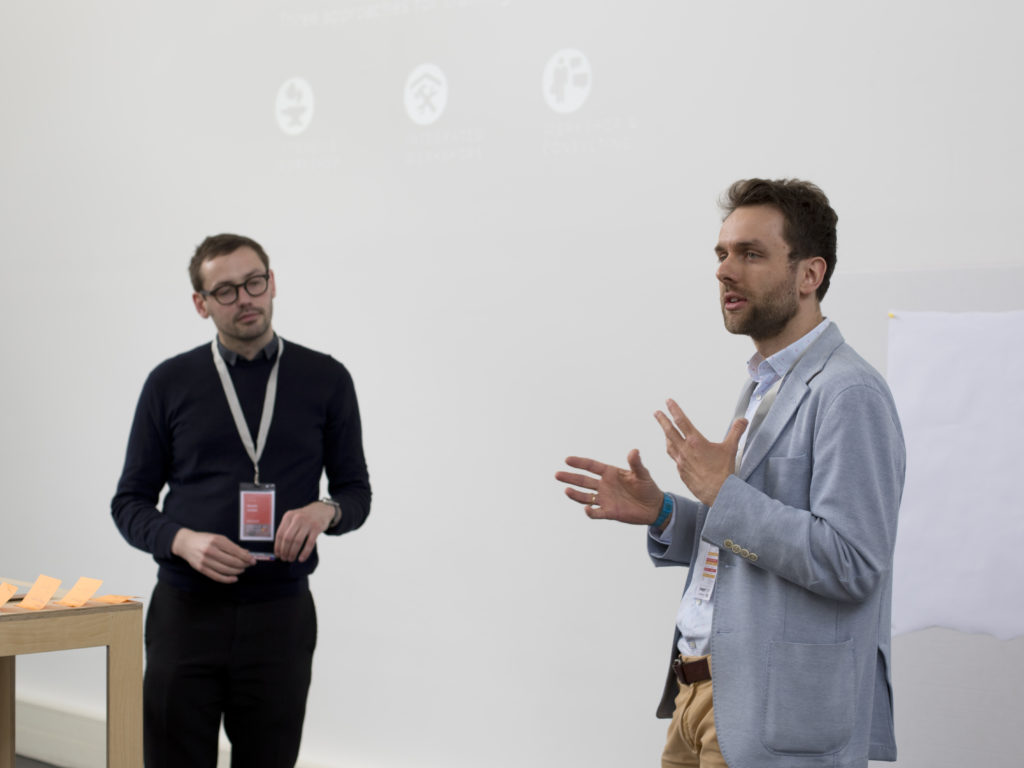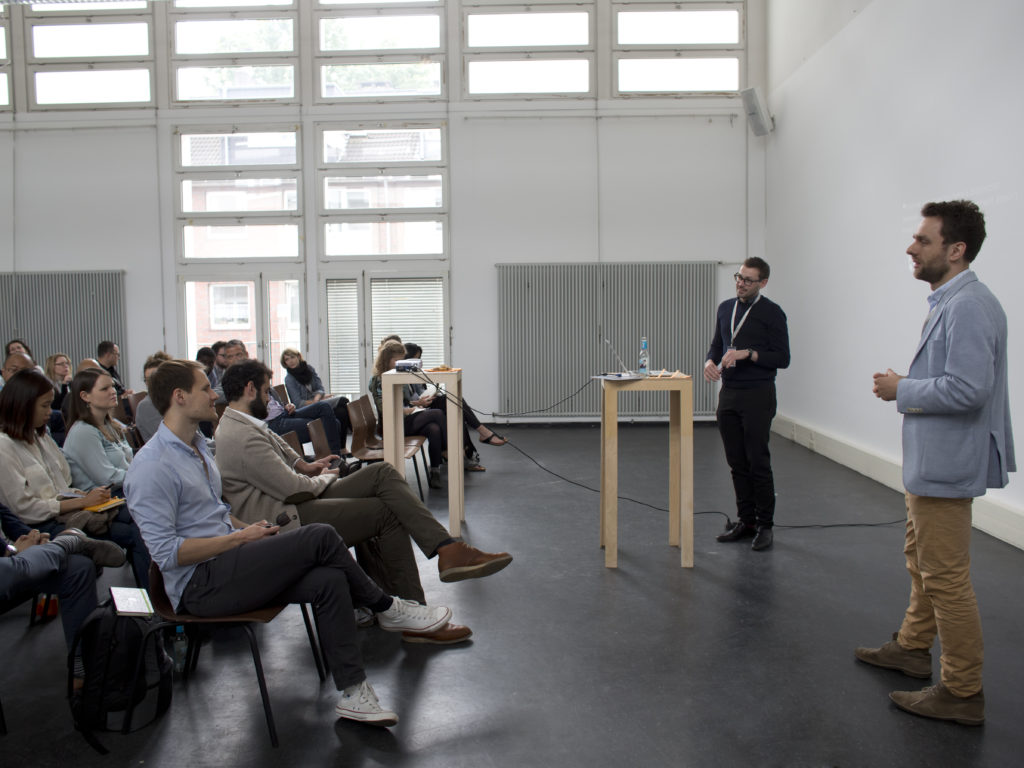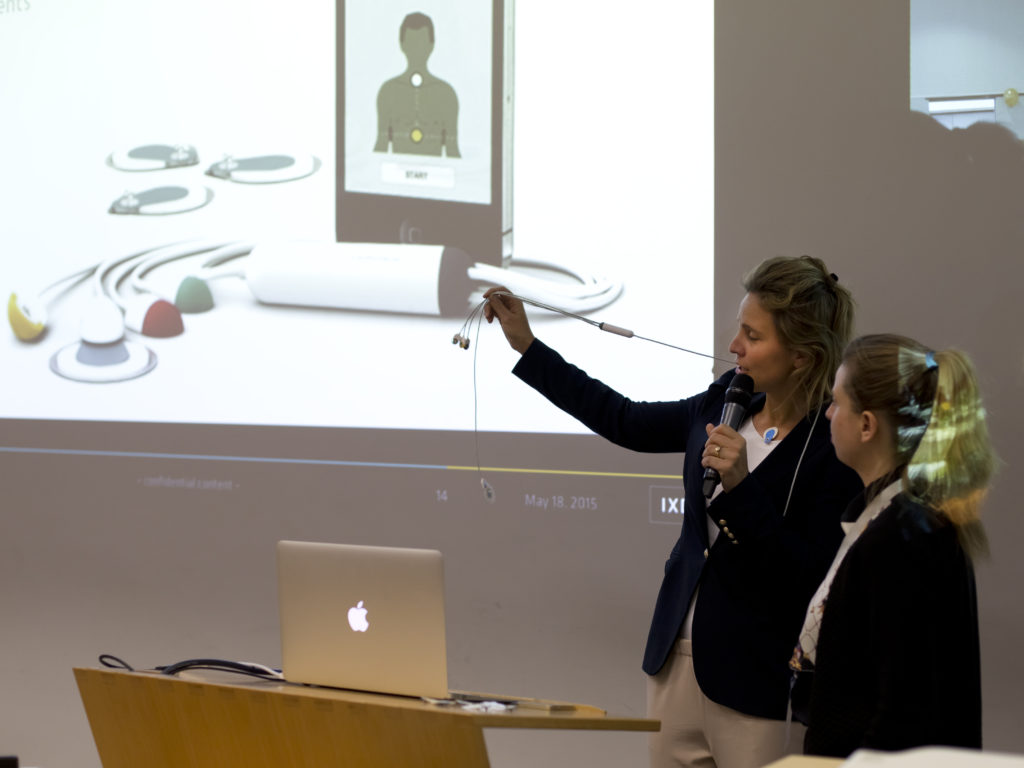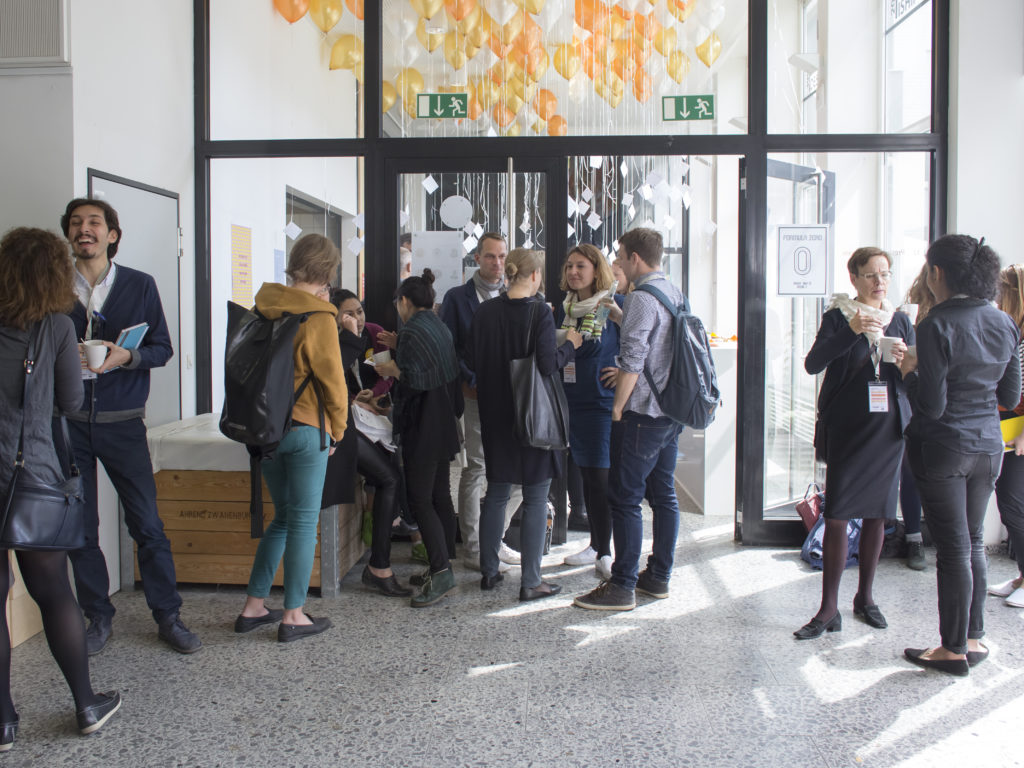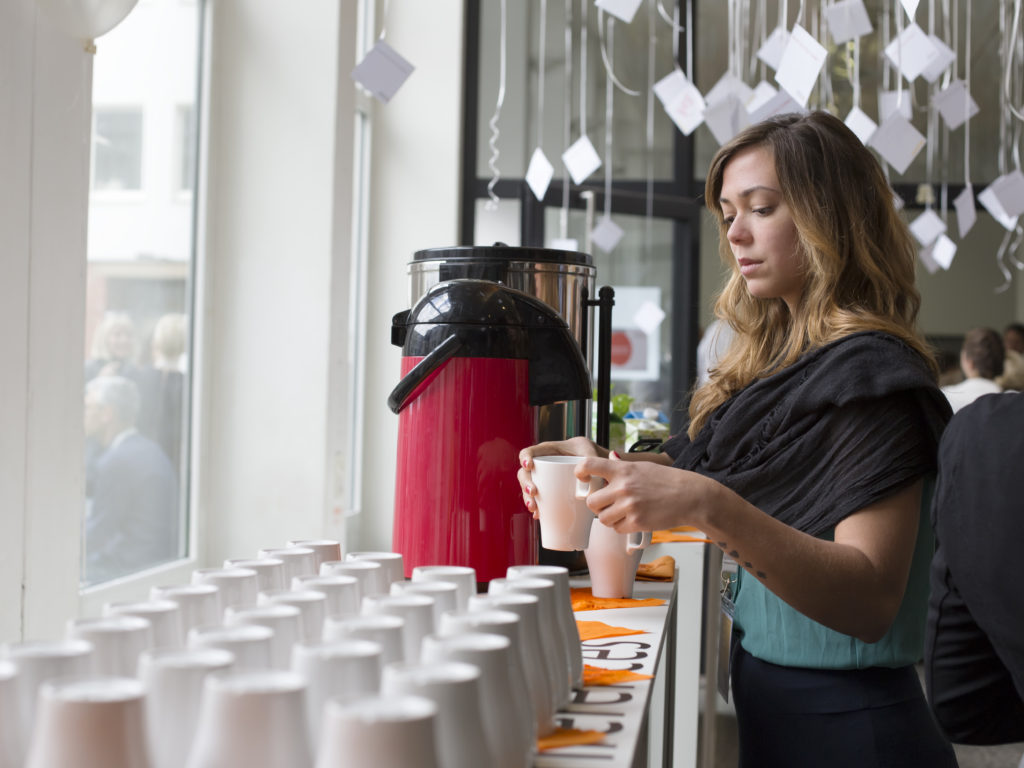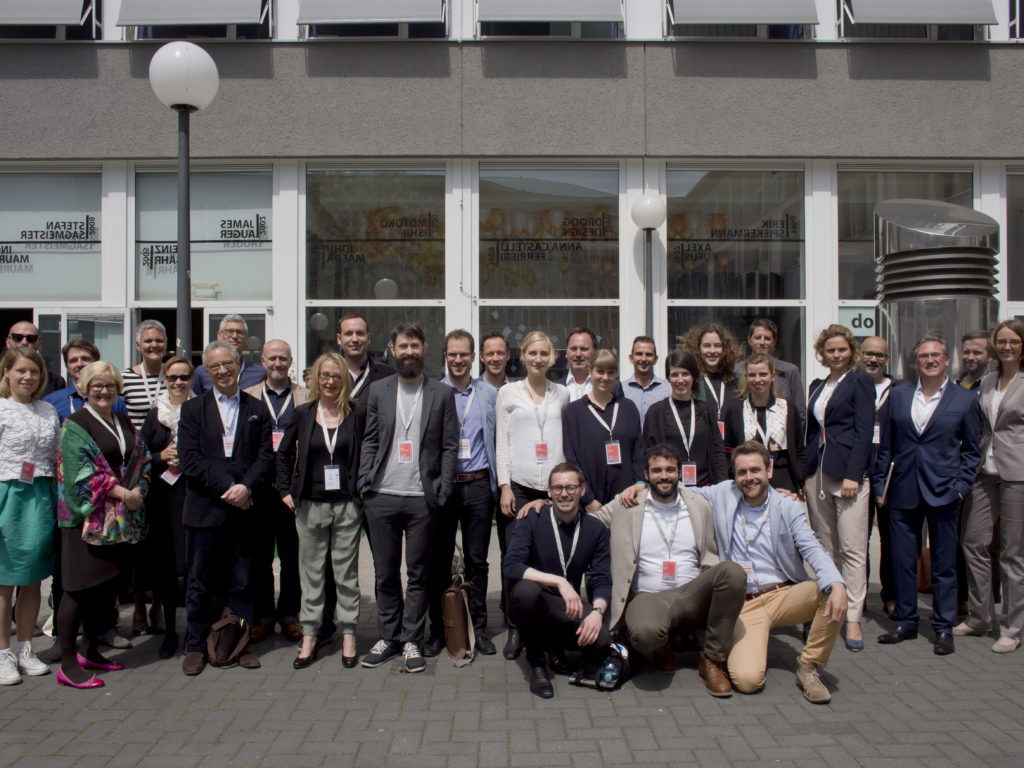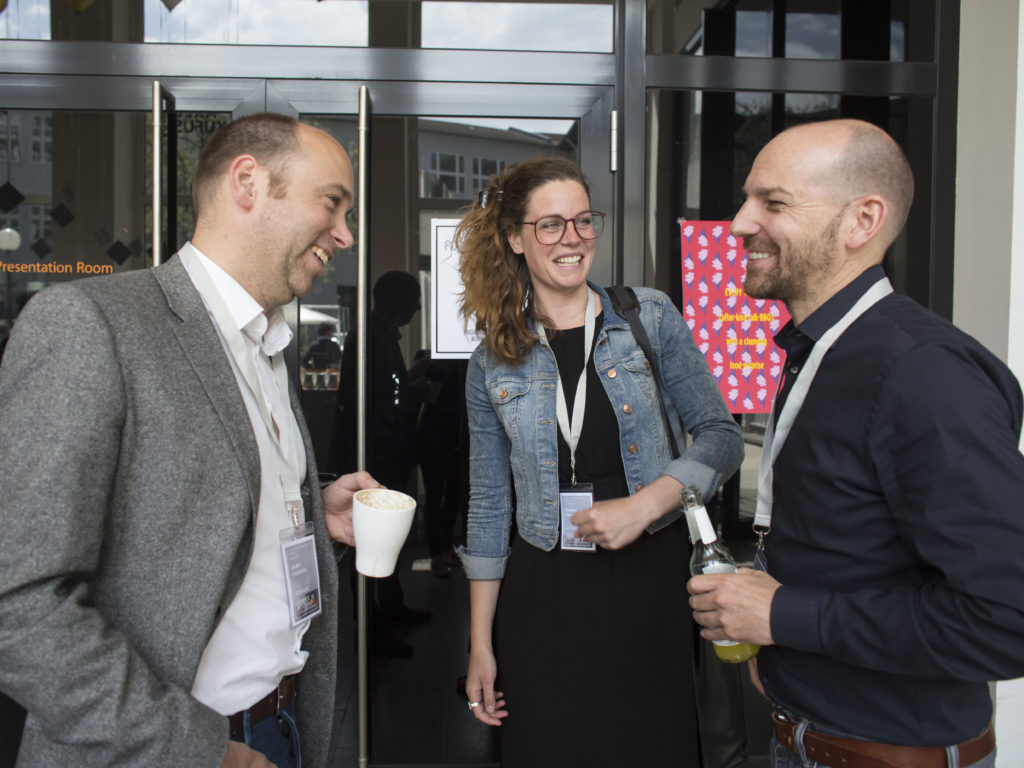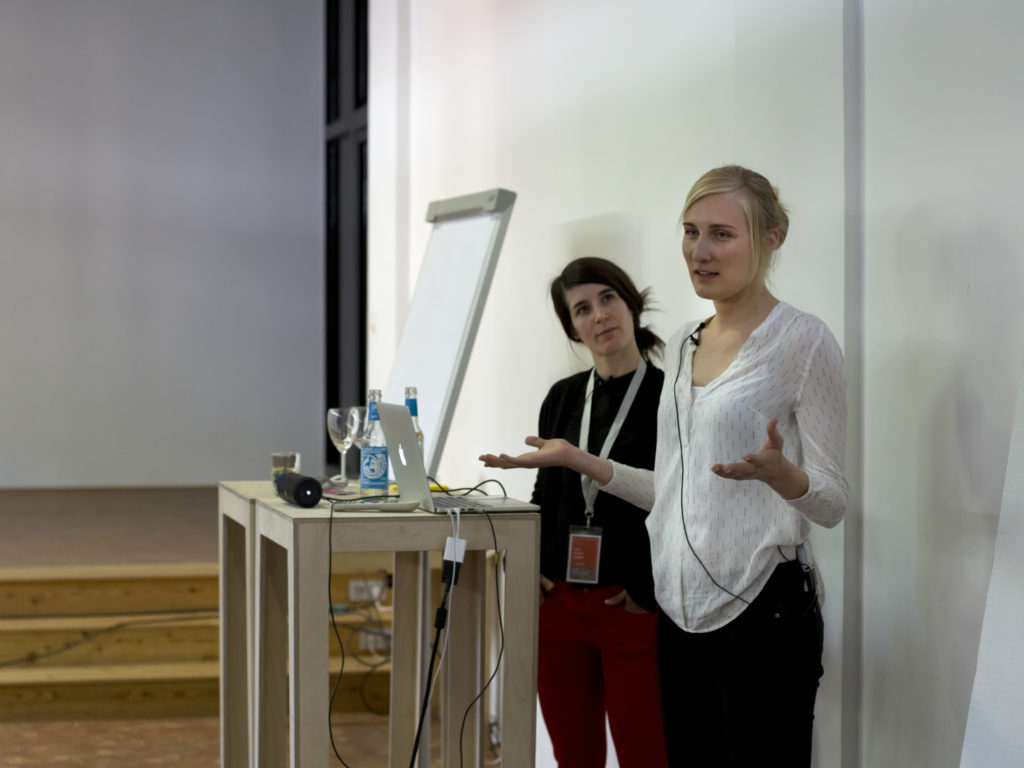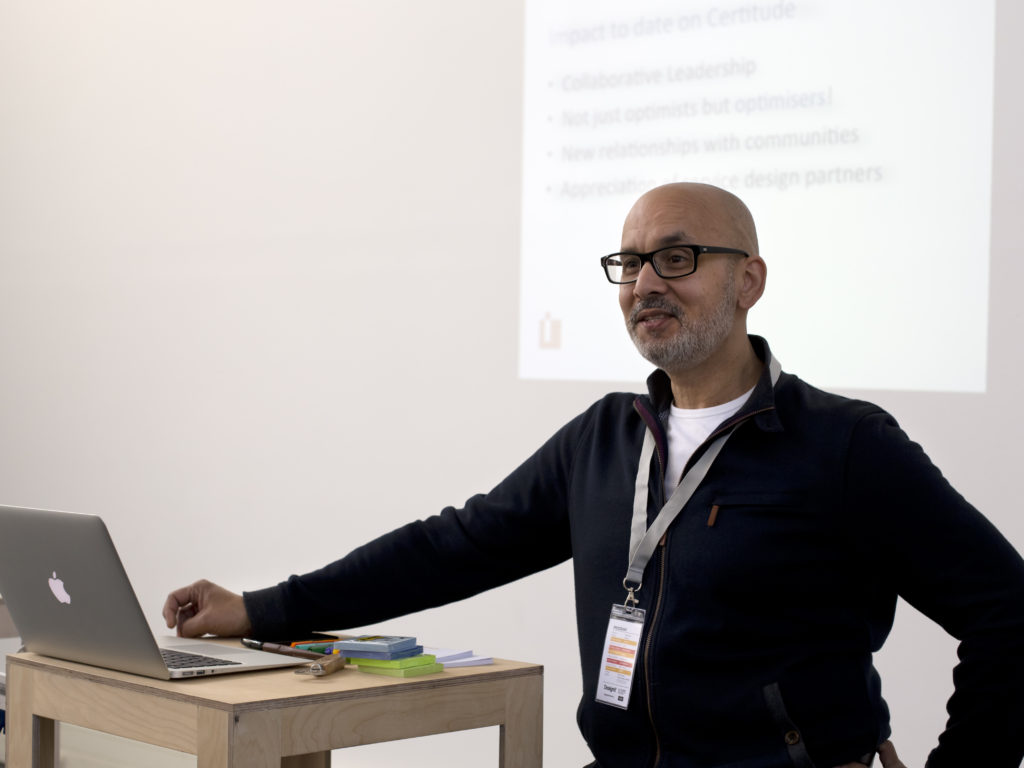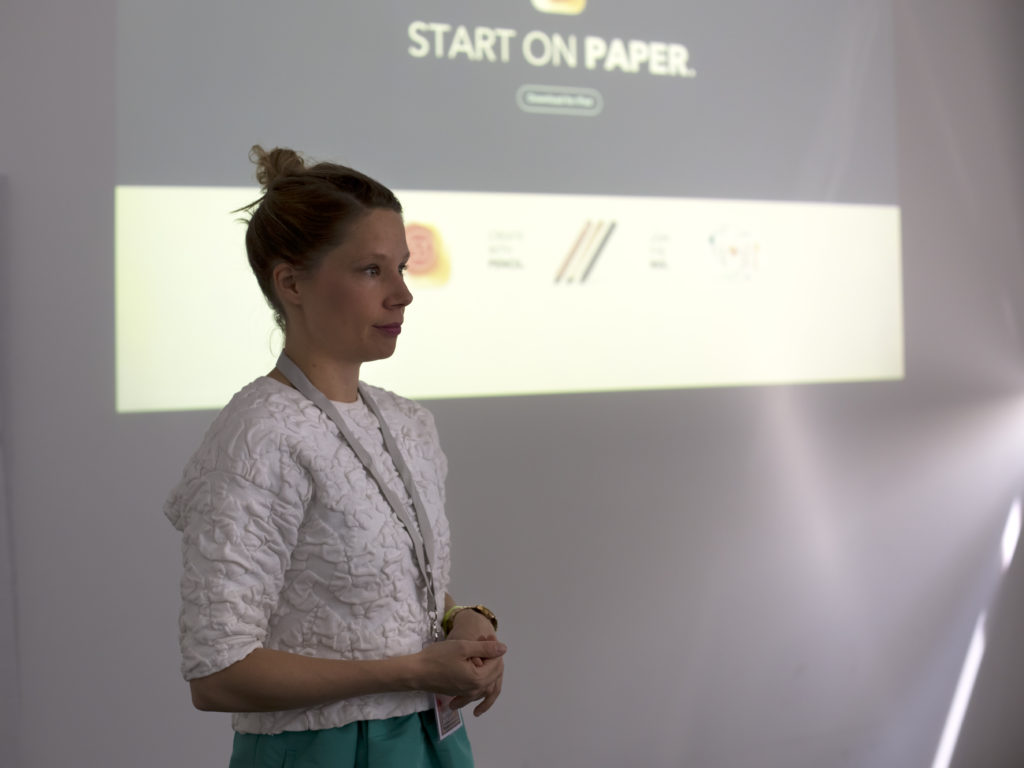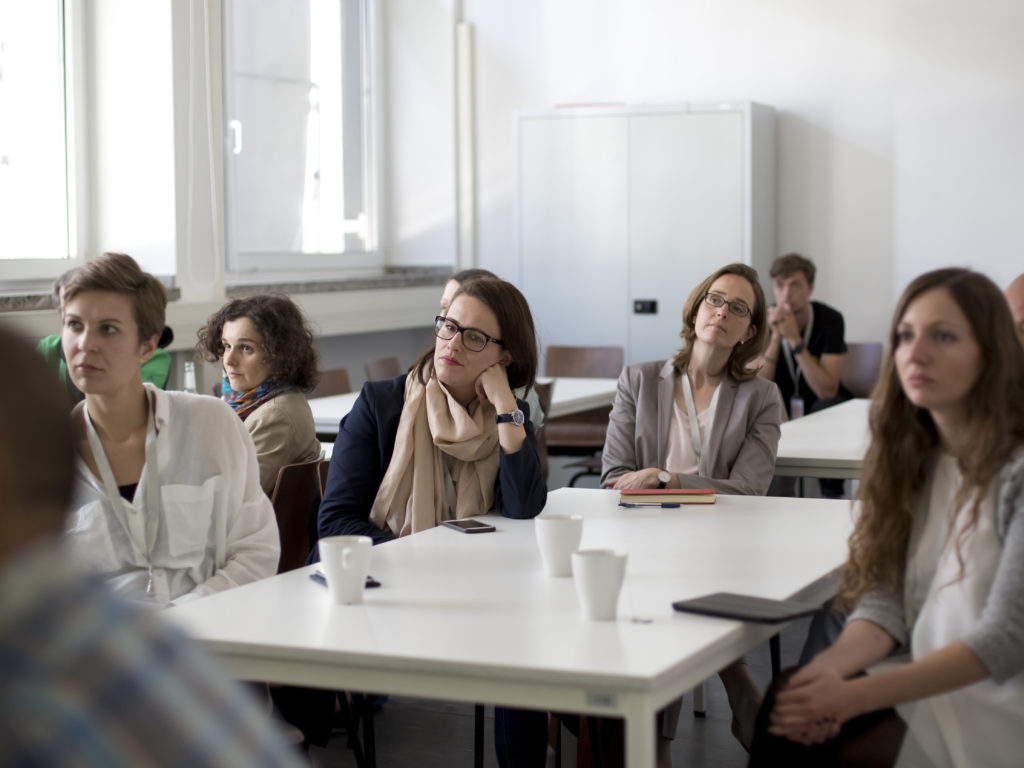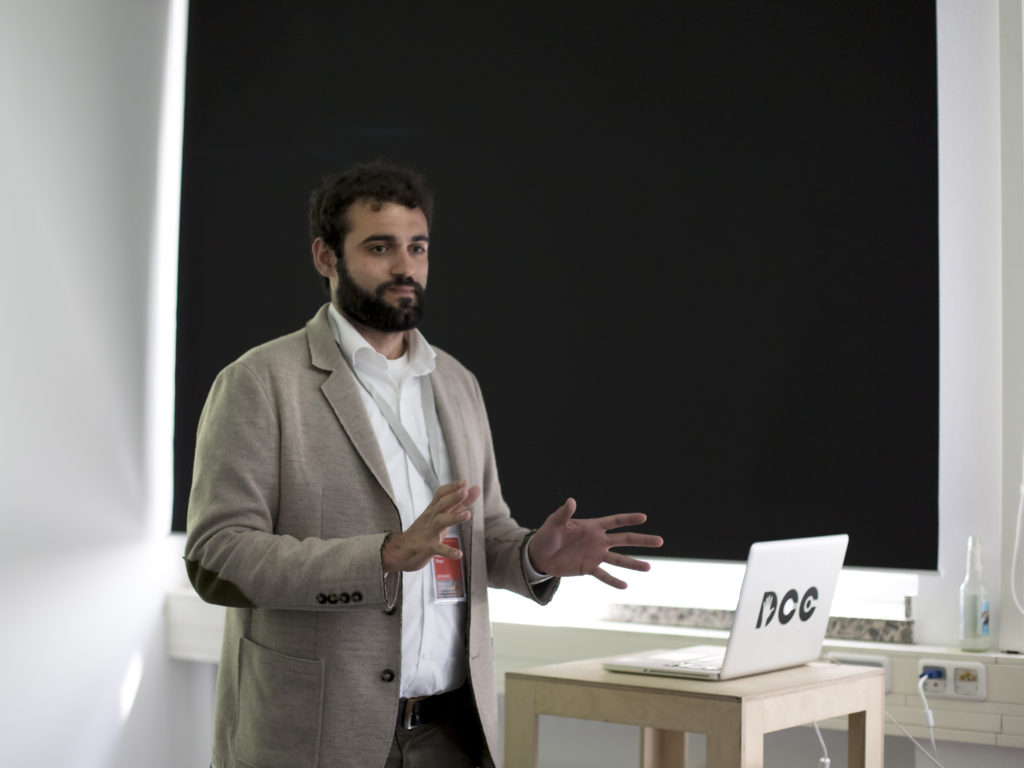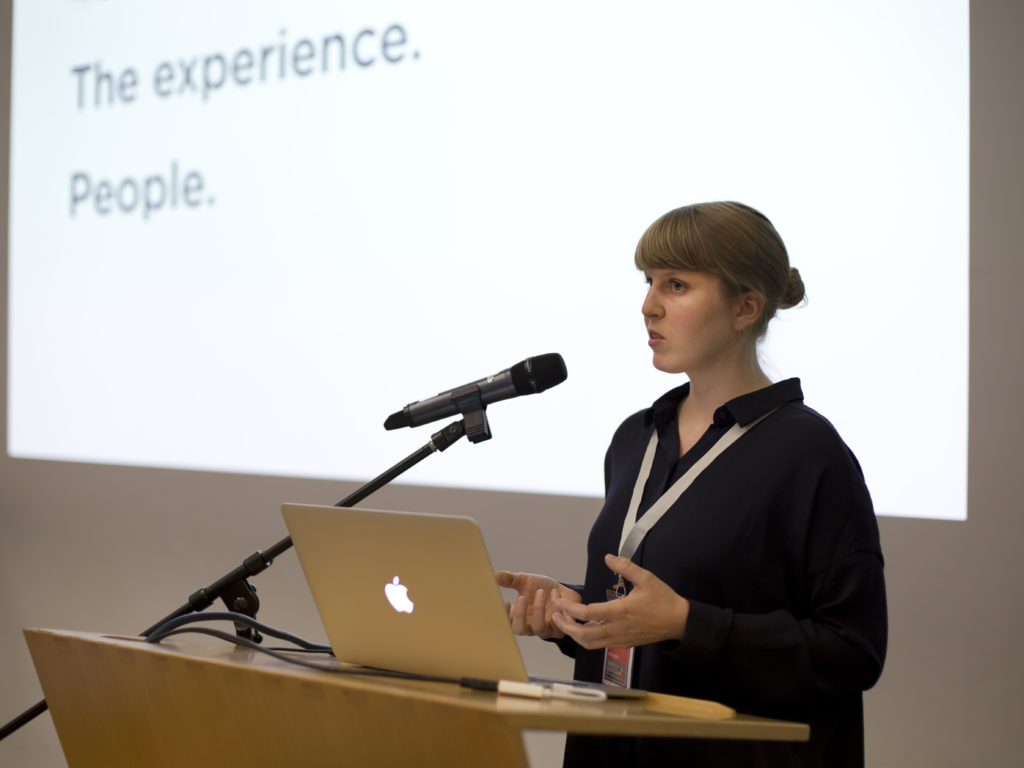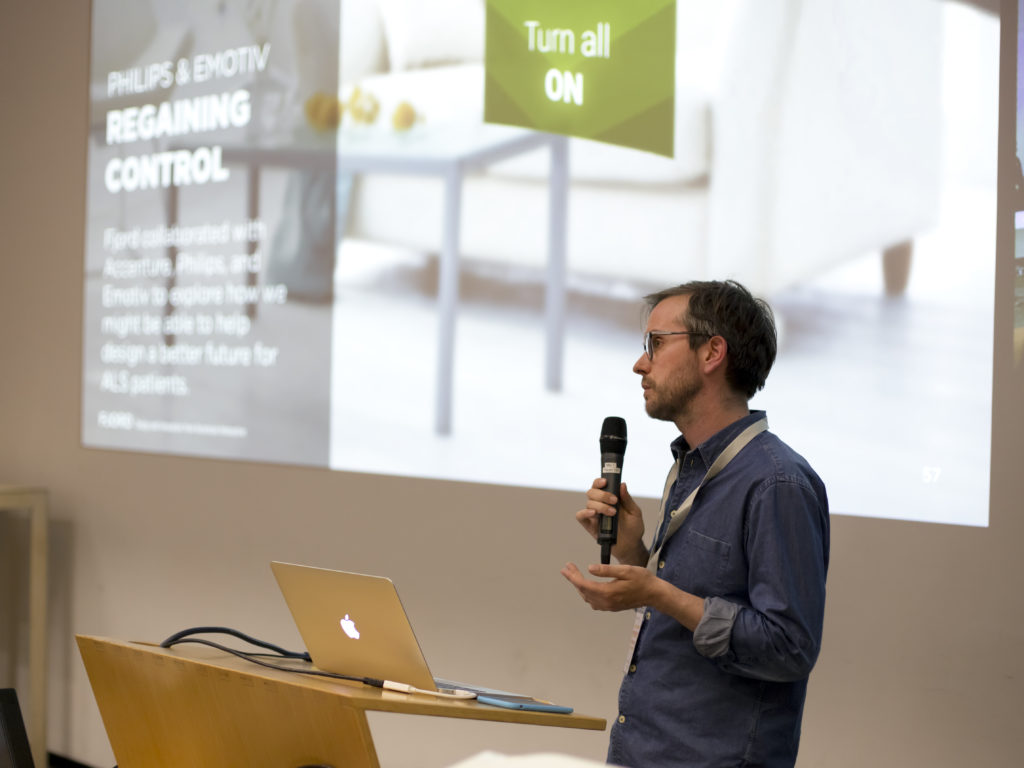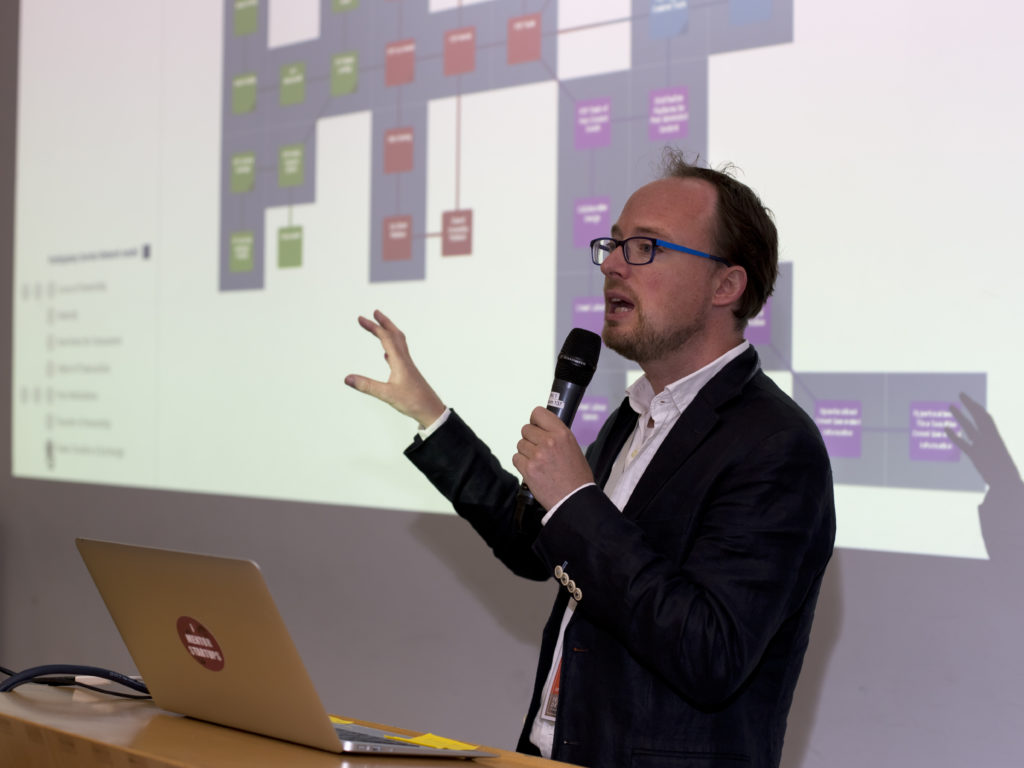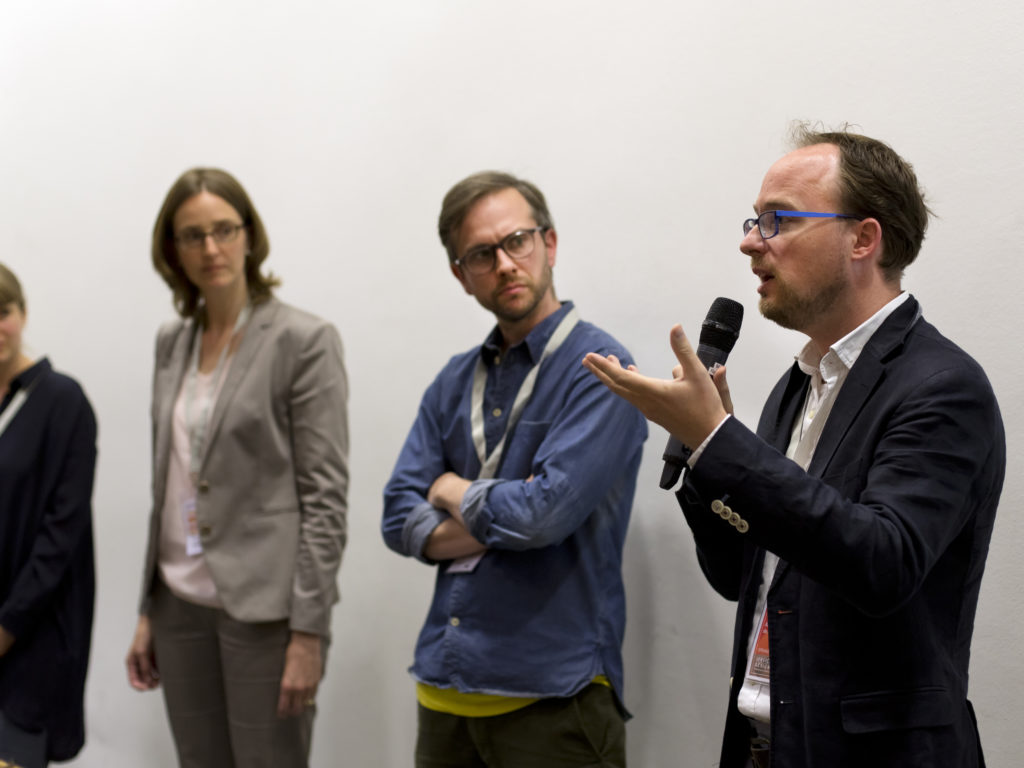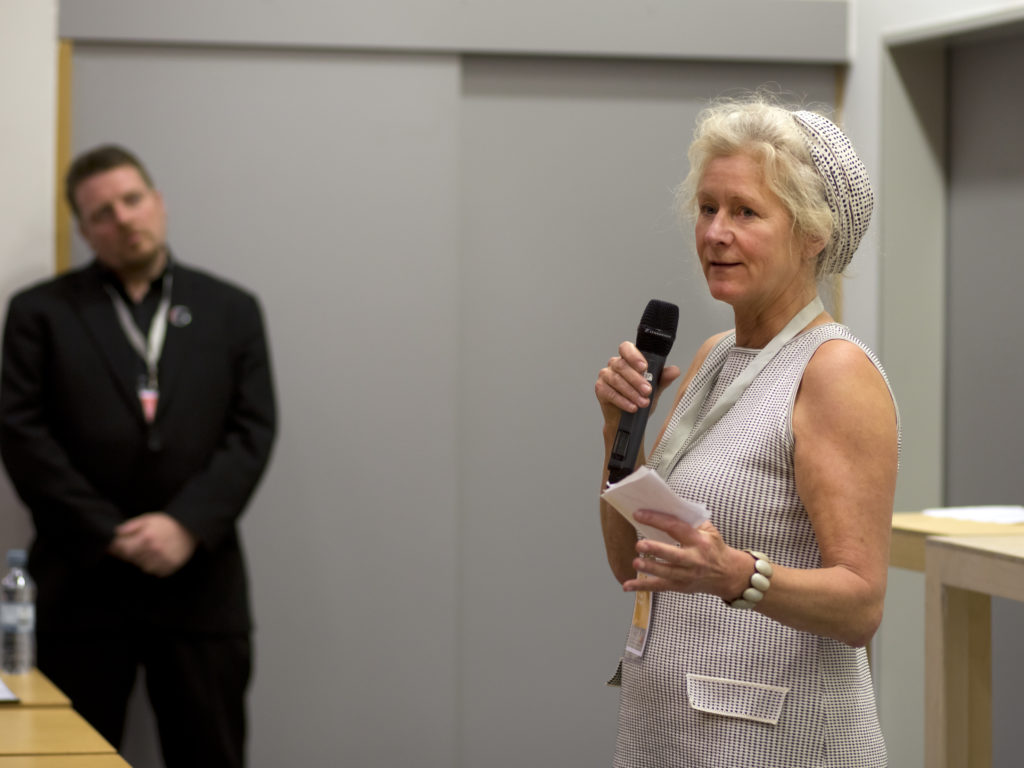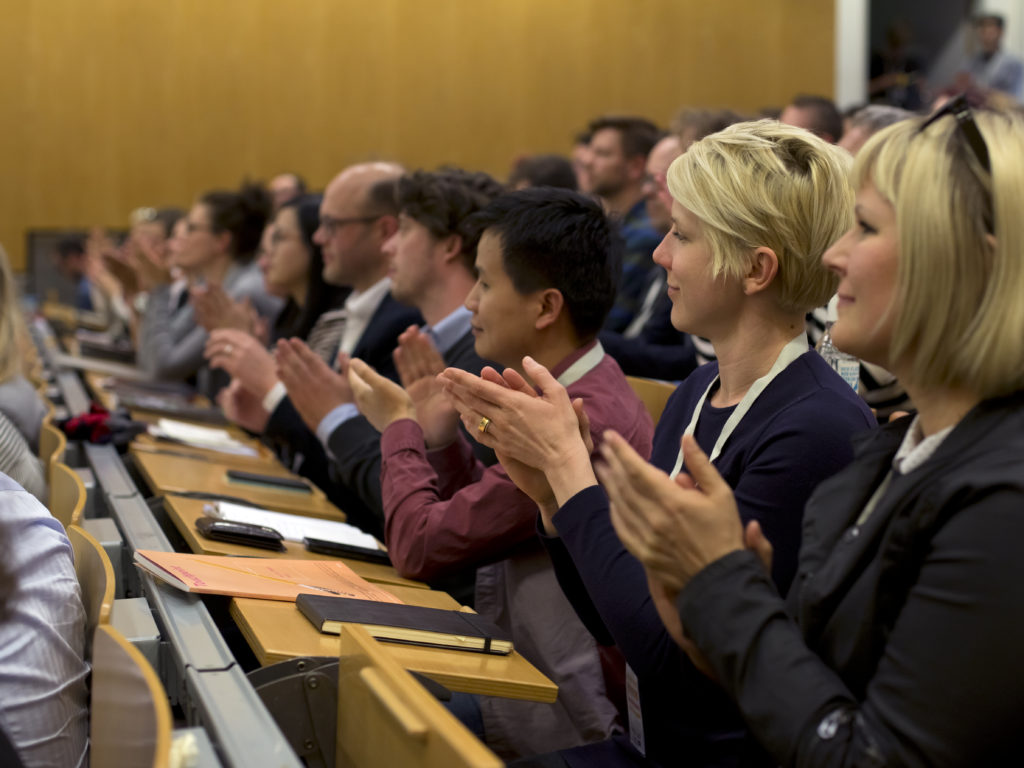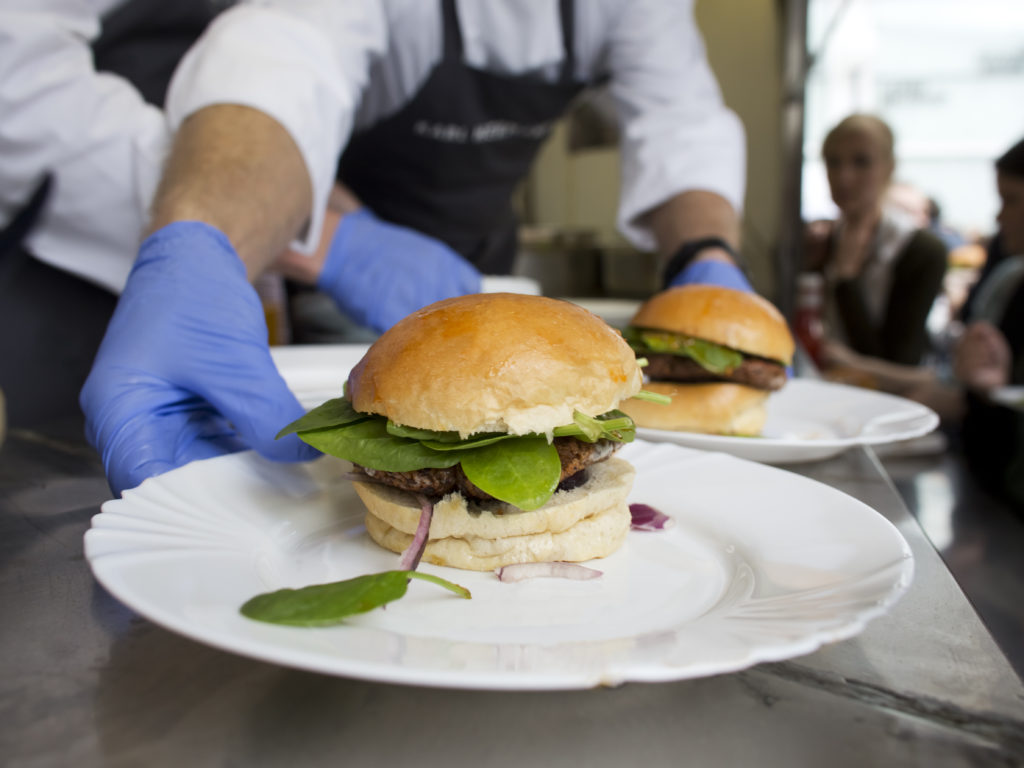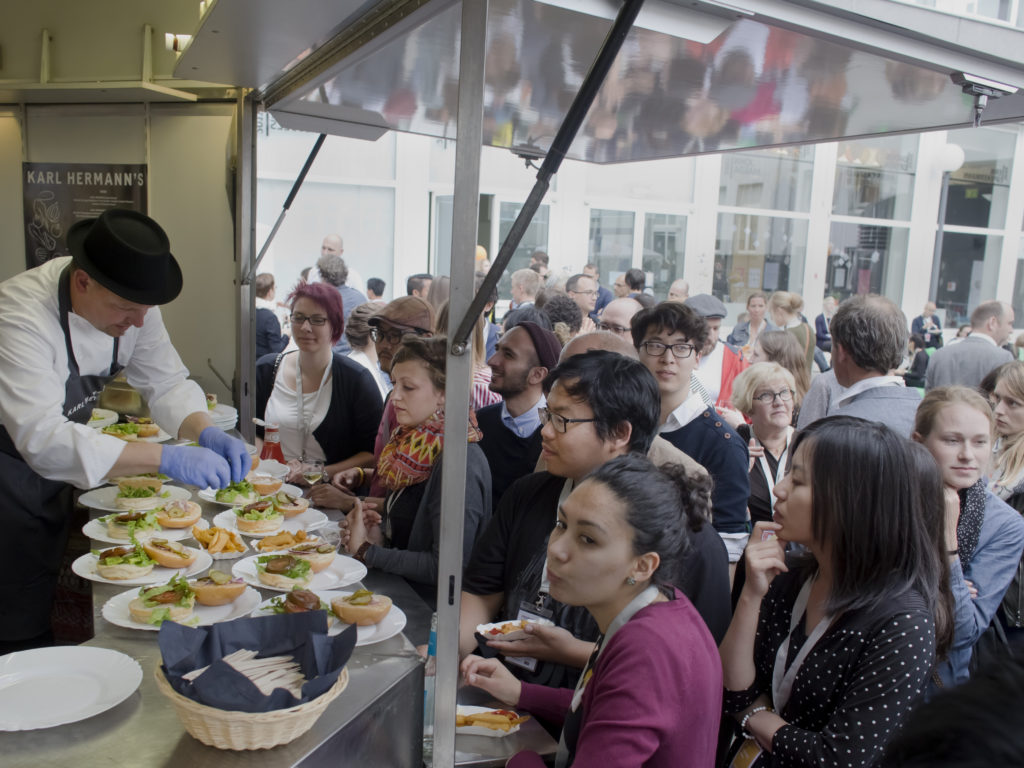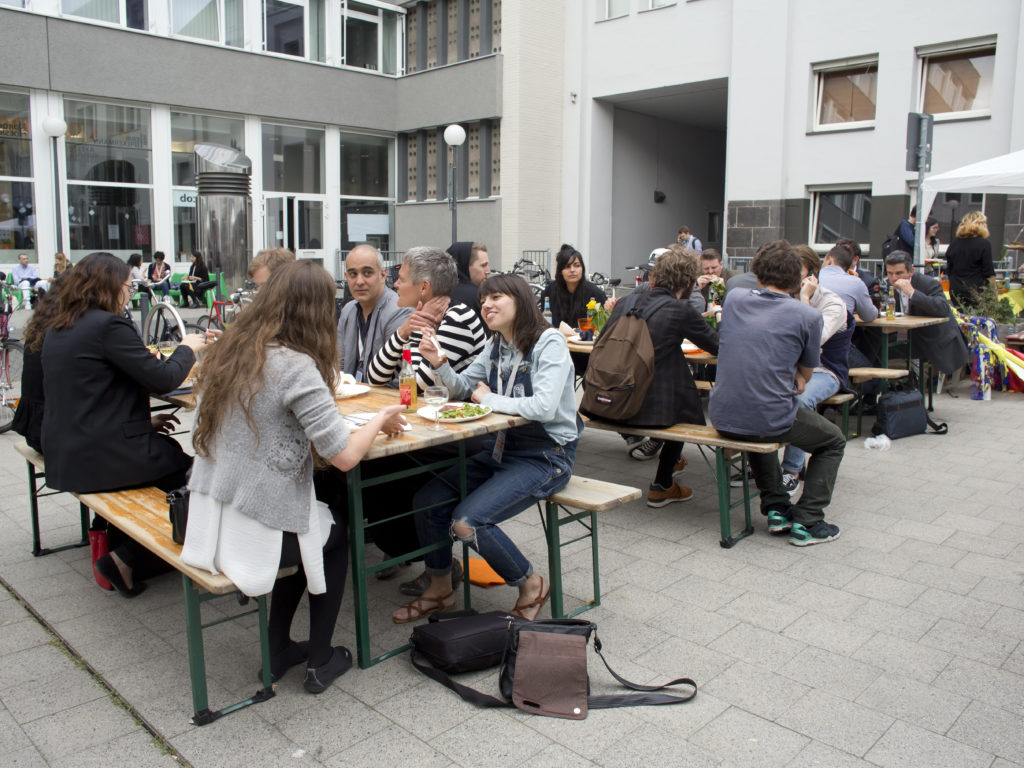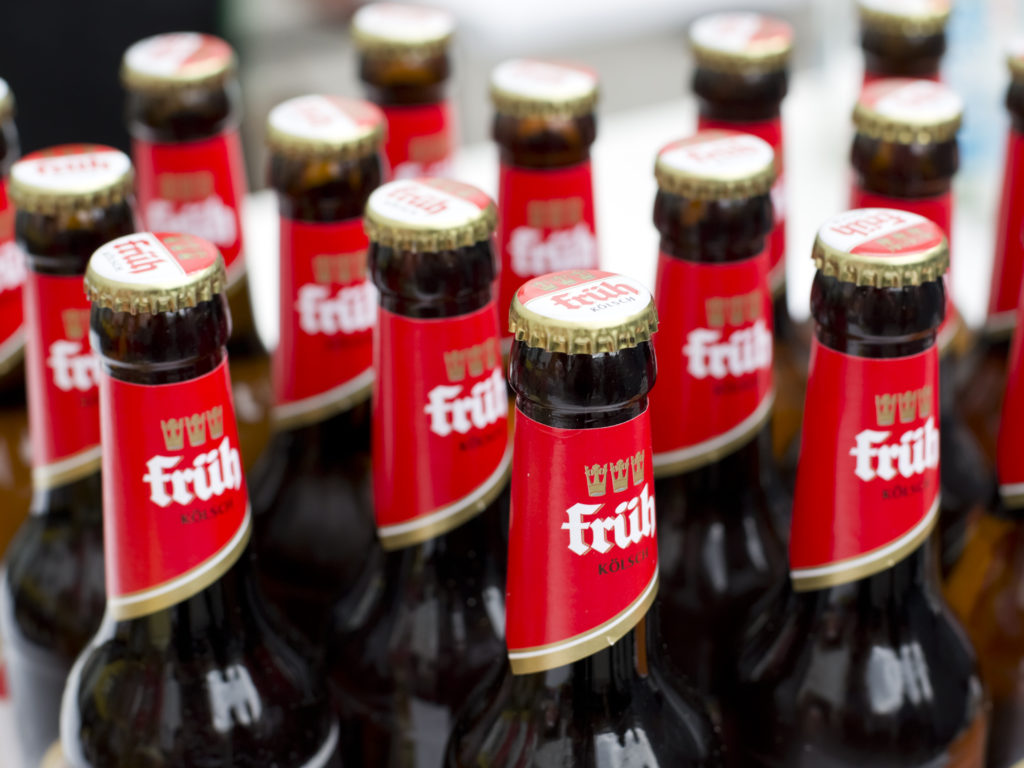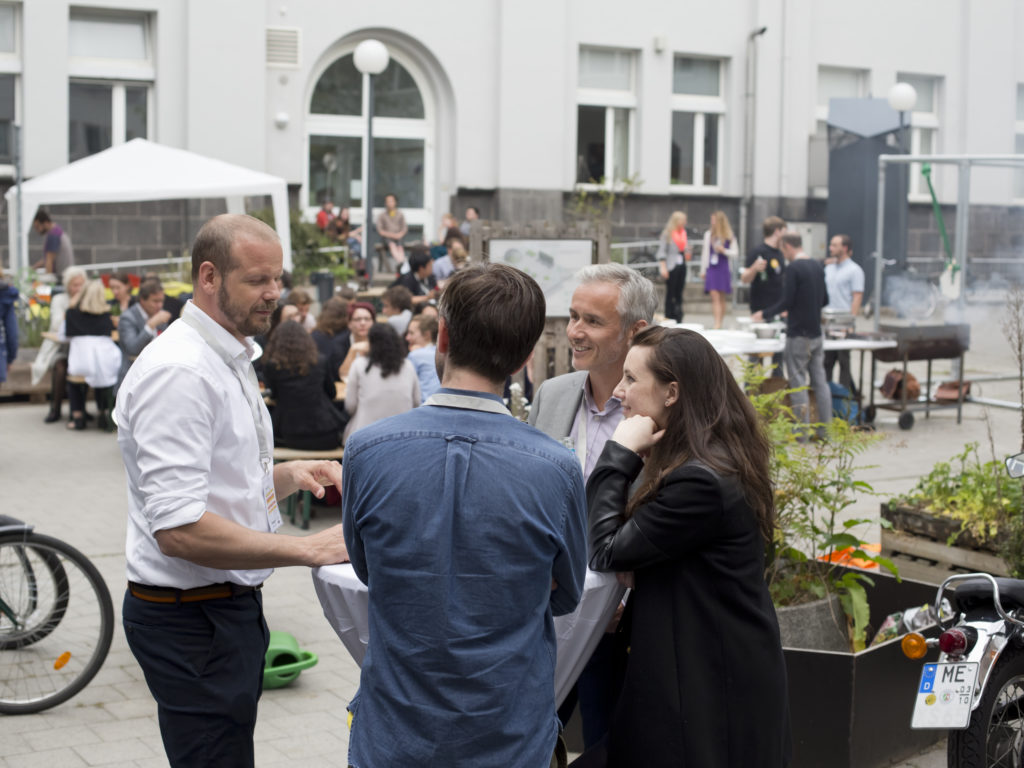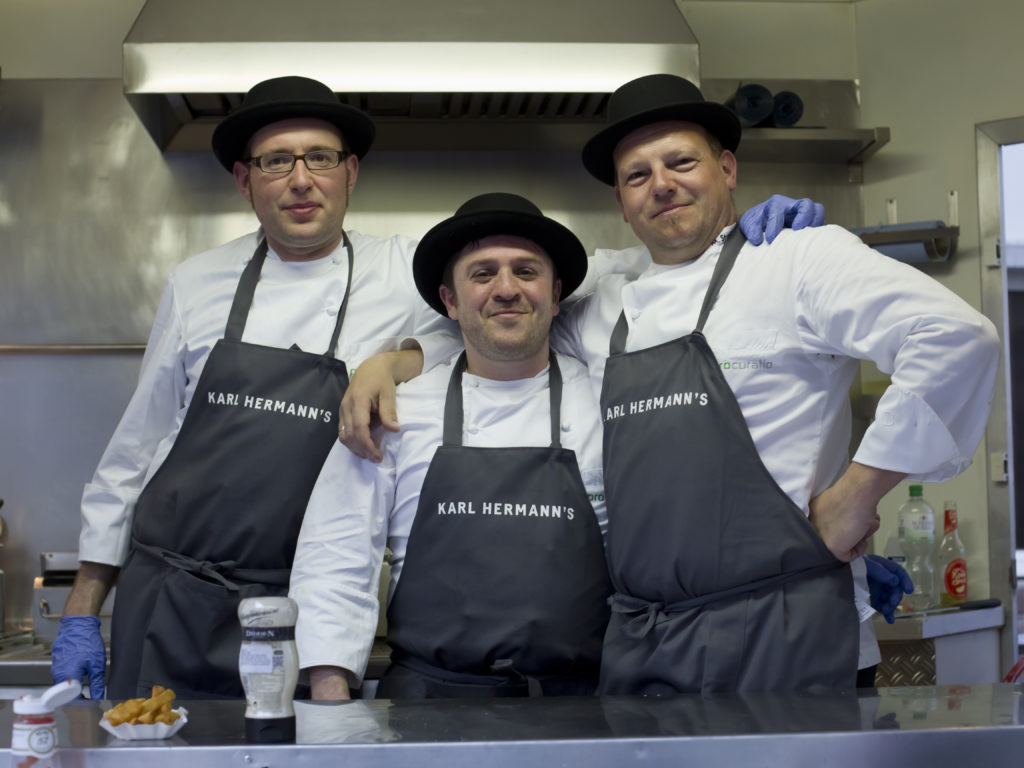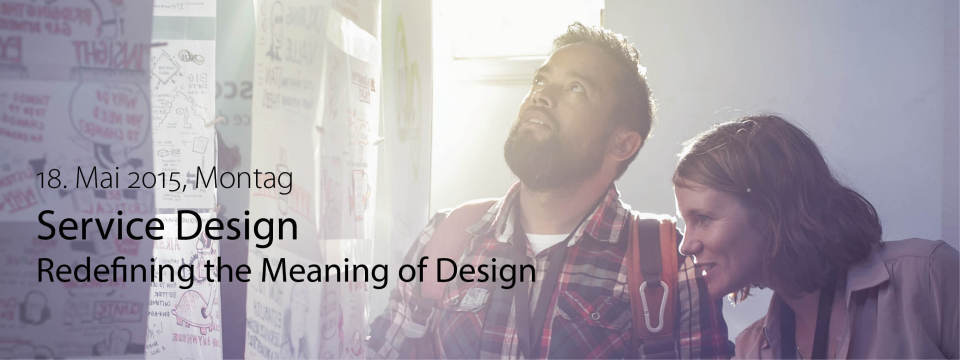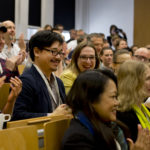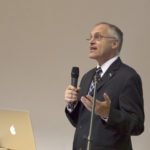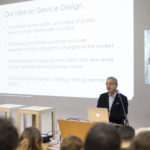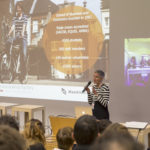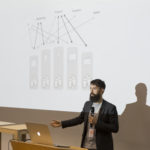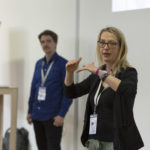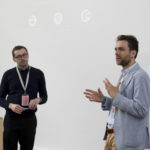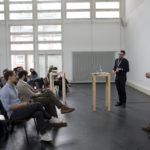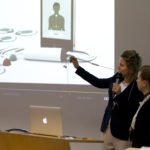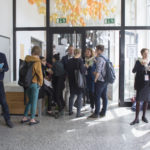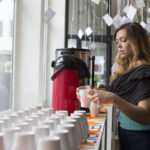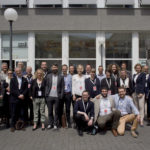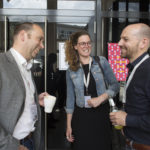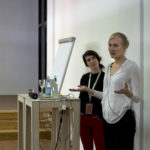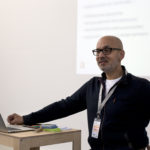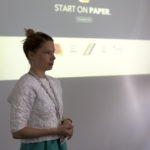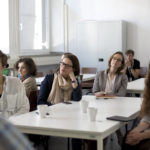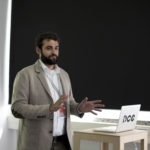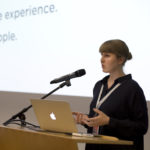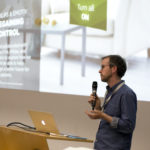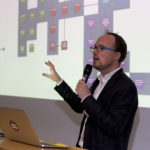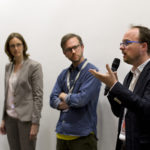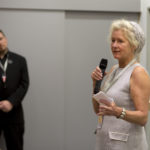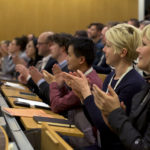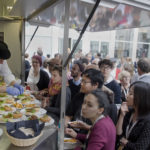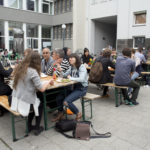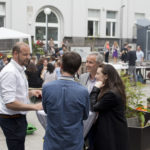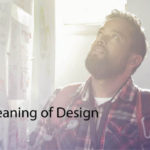Design ist schon lange nicht mehr auf die Gestaltung der materiellen Welt konzentriert. In den letzten zwei Jahrzehnten hat es seine gestalterischen und innovativen Kompetenzen in der Welt der Dienstleistungen entfaltet. Dienstleistungen sind komplexe Systeme von Menschen, Prozessen, Strukturen und materiellen Evidenzen – eingebettet in einen kulturellen Kontext. Service Erfahrungen zu gestalten umfasst eine breite Palette von Aktivitäten.
Service Designer arbeiten in interdisziplinären Teams, um Möglichkeiten zur Verbesserung und Innovation von Dienstleistungssystemen zu erforschen. Diese können in Strategien, Strukturen, Prozessen sowie in der Interaktion von Menschen oder Menschen und Maschinen liegen – und selbstverständlich auch in der Gestaltung des materiellen Umfelds der Dienstleistungserbringung. Sie können sich sowohl auf die „Frontstage“ – also die Service Bühne – als auch auf der „Backstage“ Dienstleistung beziehen.
Vor 20 Jahren wurde Service Design als eine neue und experimentelle Disziplin an der Köln International School of Design implementiert. In den letzten zwei Jahrzehnten hat sie sich zu einem international anerkannten Gebiet in Wissenschaft und Praxis entwickelt. Universitäten auf der ganzen Welt machen Studienangebote, Service-Design-Agenturen haben erfolgreich ihr Geschäft aufgebaut und Unternehmen arbeiten mit Service Design Agenturen zusammen, zugleich entwickeln sie Service Design Kompetenzen innerhalb ihrer Unternehmen.
Also, was ist anders an Service Design? Wie verhält es sich zu den traditionellen Kompetenzbereichen von Design und wie hat sich die Bedeutung von Design in der Weiterentwicklung verändert? Gibt es einen theoretischen und methodischen Rahmen, der Design neu definiert? Können wir über die Zukunft der Dienstleistungswirtschaft und die Rolle, die Design zukünftig spielen wird einen Ausblick geben?
Diese Konferenz wird den theoretischen und methodischen Rahmen von Service Design beleuchten und reflektieren, wie Service Design die Rolle von Design in unserer Gesellschaft und Wirtschaft beeinflusst. Fallbeispiele geben einen Einblick in die Gestaltung von Dienstleistungen als Praxis und Workshop-Formate werden detaillierte Einblicke in die Verfahren und Methoden von Service Design ermöglichen.
Im Anschluss an die Veranstaltung wird es einen vergnügten Empfang anlässlich des 20-jährigen Bestehens des Lehrgebietes Service Design an der KISD geben.
Die Konferenzsprache ist englisch!
Wer sollte teilnehmen?
- Dienstleister im öffentlichen und privaten Sektor haben die Möglichkeit Service-Design kennenzulernen.
- Praktiker und Forscher aus verwandten Bereichen werden in einen interdisziplinären Kontext eintreten und ihr Know-how mit Design verknüpfen.
- Auch für Designer und Designstudenten ist die Konferenz ebenfalls zu empfehlen – ein Tag mit „State of the Art“ aus Forschung und Praxis im Service Design.
Konzeption und Organisation:
Prof. Birgit Mager
in Zusammenarbeit mit
Enis Akiev
Bilder
Videos
Programm
Wegen der Konferenzsprache ist das Programm auf Englisch.
8:15 AM Registration
9:00 AM Opening: Professor Dr.-Ing. Christoph Seeßelberg, President CUAS
Birgit Mager, Service Design – Introducing Adam Lawrence (workplayexperience) MoC and Facilitator of the Conference
9:15 AM – 10:45 AM Speeches
“Shifting the Focus. New domains for Design.”
Mark Bernhardt, Jennifer Bagehorn, Meiré and Meiré & Pia Betton, Bastian Boss, Edenspiekermann
Two agencies with a strong design background on stage! Edenspiekerman has integrated service design into the portfolio for many years already, Meire and Meire is starting to explore the opportunities service design might offer for the future. Why is this happening? Adam Lawrence will have a conversation with the two agencies – putting his finger on the central questions „why“ and “how”. So this opening session will give insight into the changes in our economy and how this redefines the meaning of design!
“Educate for the future”
Nick de Leon, RCA, London & Gaby Odekerken, SSF, University Maastricht
Two Universities – two approaches to service design. Nick Leon, head of the Service Design Master Program at the Royal College of Arts, London and Gaby Odekerken, Head of the Service Science Factory at the University of Maastricht will give insight in how service design is changing education – in design and in business programs.
“Software to Service”
Kalle Buschman, frog
The digital transformation is long term disrupting all markets, but most companies are not set-up to fully embrace the changes. A common tactical reaction is the investment in creating new, or updating existing software products and digital touchpoints. These companies often don’t understand the new class of challenges they are facing as a service organization. In his talk Kalle will present how frog as a product strategy and design firm is using Service Design to support companies on their journey to become a modern service provider — one touchpoint at a time.
10:45 AM Coffee Break
11:15 AM – 12:15 PM Parallel Sessions “Doing Service Design”
“From Zero To Hero – E.ON meets Service Design”
Jenny Bauschmidt, E.ON & Jan Schröder, minds & makers
Over the last four years E.ON Germany and minds & makers took on the adventure to implement an in-house Service Design approach in order to lead E.ON Germany towards a customer centric organization. We will take you on the journey that started with a lot of skepticism and resulted in global board members joining in. You will have the rare chance to hear and learn about both sides of the story – the client’s and the agency’s.
“A report from reality – Service is dead, long live Servitization.”
Benjamin Schulz, Service Innovation Labs & Felix Scharf, VW
Innovation hurts, yet shift happens. Anecdots from practicing Service Design in the corporate context. Few years ago, practicing Service Design still felt like a challenge to convince people and organisations, where today it seems like everyone is screaming the hype of Design Thinking and that Service Design is needed in every corner of organization and projects So what! Shift happened —> From the why to the how —> what to prepare for and involve in the shifted reality.
“Service design and financial services – an outside-in and an inside-out perspective.”
Taina Makijarvi, NORDEA & Alex Nisbett, Livework
“What if …? Designing Customer Centric Services In NORDEA” Taina will share experiences and learnings of planting Service Design within Private Banking and Savings & Wealth Offerings in Nordea. Taina will give insight in the internal cross-border Service Design training activity – how to start transferring the organisation towards customer centricity. What are the practical challenges that emerge when planting new ways of working? “Service Design and Financial Services – An Outside-In Perspective” Alex will take a look at some of Livework’s projects in the financial services industry from the last ten years, looking at a wide range of challenges and solutions, sharing what worked, and even what didn’t. Is there anything that typifies working in this traditional but fast moving sector? What can we learn? What is the value that service design delivers which brings banks, insurance companies and buidling societies back to the designers again and again?
“Bringing Service Design In-house – a toolbox”
Manuel Großmann & Martin Jordan, Service Design Berlin
Companies need to learn how to apply Service design themselves – instead of relying only on external experts. The session follows a pragmatic approach that provides best practises on bringing knowledge and experience in-house. We will discuss different learning concepts that address various stakeholders ranging from front stage staff to managers. An essential part of the conversation is to shed light on boundaries and pitfalls as this is an important aspect of learning as well. Furthermore dos and don’ts of ‘learning how to service design’ will be discussed.
12:15 PM – 1:15 PM Speeches
“From a medical product to a trusted health service”
Verena Augustin, IXDS & Maria Kevorkova, CardioSecur
IXDS and CardioSecur will present the story of how they launched a ground-breaking new service structure and application for heart partients. CardioSecur developed the technology that enables users at home to professionally monitor their heart health and share the data with their doctors. IXDS set out to turn the experience of monitoring your heart health into a delightful service experience through a holistic service design approach. The presentation will include experiences and perspectives on the project as well as on the process. We will discuss what’s important when designing for a service ecosystem around new technology and how to emotionalize the experience of a medical product.
“Bravery, Banks and Brands – People, technology, courage and dreams and their role in designing great experiences.”
Clive Grinyer, Barclays
Designing digital services and experience requires vision, courage and deep insight into people – the customers and the people who make decisions that impact the experience. This talk looks at how we make decisions and how design can drive better decisions and next generation digital customer experiences.
1:15 PM – 2:15 PM Lunch Break
2:15 PM – 3:15 PM Parallel Sessions “Doing Service Design”
“Stein gehabt! – Die Drive-In Customer Journey bei Carglass®”
Martin Irmler, Result Learning and Transfer GmbH & Co. KG & Reinhard Strobel & Thomas Hennig, Carglass GmbH
Stein gehabt? – Was dann? Carglass® ist ein offenes Haus, jeder Kunden kann spontan vorbei kommen, ohne Termin. Empfangsraum und Werkstatt – alle Räume sind zugänglich und der Kunden ist eingeladen beim Reparaturprozess zuzuschauen. Ein Zeichen für Expertise und Premium-Service, aber auch eine Herausforderung für die Service-Mitarbeiter, die oft Kundenbetreuung und Montagearbeiten zugleich machen. Wie zeige ich Expertentum? Welche Prozess, Werkzeuge und Verhaltensweisen setzen das richtige Zeichen beim Kunden? Wie überzeuge und begeistere ich ganz unterschiedliche Kunden-Typen von der Carglass® Qualität? Und wie fördere ich die notwendige Verhaltensänderung der Mitarbeiter? Wir zeigen den Entwicklungsprozess der neuen Drive-In Customer Journey bei Carglass® und testen gemeinsam die Herausforderung der Verhaltensänderung und des Expertentums.
This session will be in german.
“Make it real. Start with post-its, finish with the implementation.”
Barbara Grosse-Hering & Ione Ardaiz, Designit
Service Designers have long discussed about the research and conceptualisation of services, building a solid expertise. The implementation of services however, is a phase that has set aside. The implementation phase is the one which makes our service ideas come to life and is the one that we should really take care of. In this session we would like to share our experiences on implementing services and discuss them with participants: the process, examples and key learnings.
“How to make friends, and save the economy”
Aviv Katz & Nicholas Campbell Watts, Innovation Unit and Certitude
The workshop will focus on the power of our social and emotional assets – and how to use them to become more successful. Through storytelling and scenarios we will explore how service design can help make people happy and connected. It draws on the experience of certitude, a London-based charity that offers a range of services for people with mental health issues and learning disabilities. They have been looking at new ways of supporting users become more confident and independent. Working with the Innovation Unit’s service design they are rolling out an asset-based approach to supporting their users.
“Designing Back Office’s Services”
Marion Fröhlich & Mauro Rego, SAP
Enterprise IT is a complex context. It is usually taken only as a provided software for a specific work transaction, however it is part of an entire experience. The software is part of a delivered value that goes beyond its functions. So what changes for the designer when the enterprise IT is not anymore a product provider? From cloud services at work to tablets in the classroom, the individual software applications are now framed as service-bundle. We are putting enterprise services under the microscope. We discuss its challenges, short-comings and potentials.
3:15 PM – 3:45 PM Coffee Break
3:45 PM – 5:45 PM Speeches
“Prototype your way forward”
An on-stage interview with Barbara Franz, IDEO & Dorothea von Boxberg, Lufthansa
In 2013 Lufthansa joined forces with IDEO to rethink the airline’s business class service on long-haul flights: An ambitious service design project took off – including prototyping the new passenger experience in a 1:1 prototype of an Airbus A380 with 92 business class seats and fully equipped galleys in Lufthansa’s test center. The concept has been tested, “live” on board, since July 2014 – and in this session participants will have the opportunity to hear first-hand about the project, the process and the results. Adam Lawrence will be on stage in conversation with Dorothea von Boxberg and Barbara Franz.
“What’s next for Service Design – Designing for Disappearance?”
Thomas Müller, Fjord
Thomas Müller will illustrate how Fjord as a global leader in service design, looks at how the relatively young category of ‘wearables’ is challenging the very notion of design. Designers will need to continuously evolve their role, skills and tools to stay relevant, inspire, collaborate and guide even as the results of their work increasingly will become invisible or altogether disappear.
“Service design for networked business models”
Aldo de Jong, Claro Partners
With increased connectivity, networks at both a global and local level are growing rapidly whilst new communities can develop and flourish through digital channels. These allow for resources to be shared, swapped, borrowed and traded; bearing a new economy that favours access over ownership. We’ll make sense of how these models, like Whipcar, Airbnb, Zopa and Thredup work and examine the way in which they disrupt business as usual. This is a dramatically different user experience context that demands a transformation of our approach to service design. In this session we will share findings from our global research that explored the experiences and opportunities involved in moving from an ownership economy to one built on access and sharing. We will present guidelines for creating value exchange networks and share some tools we’ve developed for creating networked services and business models in the sharing economy.
Think Big. Discussion with some of the thoughtleaders in Service Design
Description is coming soon
5:45 PM Final words by Birgit Mager
6:00 PM Service Design Reception:
Celebration 20 Years of Service Design at KISD
Referenten
 Verena Augustin
Verena Augustin Verena Augustin
Verena Augustin Jennifer Bagehorn
Jennifer Bagehorn Jennifer Bagehorn
Jennifer Bagehorn Jenny Bauschmidt
Jenny Bauschmidt Jenny Bauschmidt
Jenny Bauschmidt Mark Bernhardt
Mark Bernhardt Mark Bernhardt
Mark Bernhardt Kalle Buschmann
Kalle Buschmann Kalle Buschmann
Kalle Buschmann Marion Fröhlich
Marion Fröhlich Marion Fröhlich
Marion Fröhlich Clive Grinyer
Clive Grinyer Clive Grinyer
Clive Grinyer Barbara Grosse-Hering
Barbara Grosse-Hering Barbara Grosse-Hering
Barbara Grosse-Hering Thomas Hennig
Thomas Hennig Thomas Hennig
Thomas Hennig Martin Irmler
Martin Irmler Martin Irmler
Martin Irmler Aldo de Jong
Aldo de Jong Aldo de Jong
Aldo de Jong Martin Jordan
Martin Jordan Martin Jordan
Martin Jordan Aviv Katz
Aviv Katz Aviv Katz
Aviv Katz Maria Kevorkova
Maria Kevorkova Maria Kevorkova
Maria Kevorkova Adam Lawrence
Adam Lawrence Adam Lawrence
Adam Lawrence Taina Makijarvi
Taina Makijarvi Taina Makijarvi
Taina Makijarvi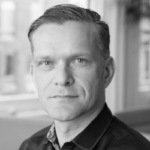 Thomas Müller
Thomas Müller Thomas Müller
Thomas Müller Alex Nisbett
Alex Nisbett Alex Nisbett
Alex Nisbett Mauro Rego
Mauro Rego Mauro Rego
Mauro Rego Ione Ardaiz Osacar
Ione Ardaiz Osacar Ione Ardaiz Osacar
Ione Ardaiz Osacar Felix Scharf
Felix Scharf Felix Scharf
Felix Scharf Jan Schröder
Jan Schröder Jan Schröder
Jan Schröder Benjamin N. N. Schulz
Benjamin N. N. Schulz Benjamin N. N. Schulz
Benjamin N. N. Schulz Reinhard Strobel
Reinhard Strobel Reinhard Strobel
Reinhard Strobel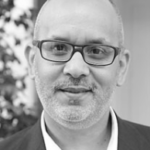 Nicholas Campbell Watts
Nicholas Campbell Watts Nicholas Campbell Watts
Nicholas Campbell Watts
Details
Date 18. May 2015
Time 8:15 am - 6:00 pm
Finished
